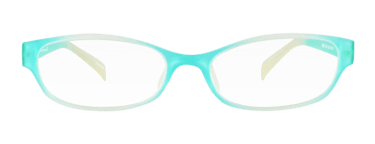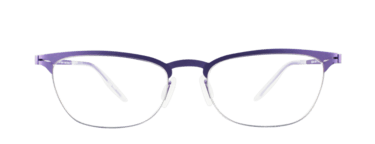NightDrive
Driving at night can be an uncomfortable experience for many people.
 |
|
Distortions caused by car and street lights at night. |
Reflections from other car head and tail lights, traffic lights and street lighting can produce large halo's and blurring of the image. This in turn makes judging distances and traffic situations difficult and can lead to dangerous situations. Many people are less confident when driving at night.
At night, it is especially important that as much light as possible reaches your eyes. This is why an anti-reflection coating on the lenses is important. The standard AR coating works great during the day. And in many cases at night as well. However, for people who suffer from the nightly halo and blurring effects, a special coating is required.
What causes this unpleasant effect at night?
 |
|
Nightdrive Gold lens coating helps in removing unwanted reflections at night |
A new, innovative, reflection control technology has been developed to address the problem. This coating ensures that 99% of the light reaches your eye, and at the same time compensates the light rays which cause the halo and blurring effects. In addition, the coating results in a noticeable improvement in perceived contrast. The result is a much improved driving experience which makes the driver with NighDrive Gold lenses much more secure behind the wheel in dark conditions.
An added benefit is that these lenses work well during daytime conditions as well,
 |
|
For progressive lens users, a combination of Drive Lens design with NighDrive Gold coating is optimal. |
As a side note:
If one searches the internet for help with night driving, numerous links to specialized night vision glasses are shown. Most of these glasses have a 20% tinted yellow hue, and are marketed to reduce glare from headlights, streetlights and traffic lights. The American Academy of Ophtamology recommends against the use of these types of lenses.
Tinted or polarized lenses used on so-called night vision glasses are designed to limit or reduce the amount of light getting to the eye. Anything that does this at night will actually make it harder to see, not easier. The problem is compounded as the yellow tint gives the wearer the impression they are seeing better, when in fact the reverse is actually true. After all, would anyone consider wearing sunglasses at night to see better?
 |
|
At night the pupil is dilated, This causes unwanted reflections for some people. |
Read the entire article here. View this ABC news segment.
This opinion is shared by the Sunglass Association of America (now The Vision Council).
 |
|
Yellow tinted lenses for night use are NOT a solution |

Recommended for you












